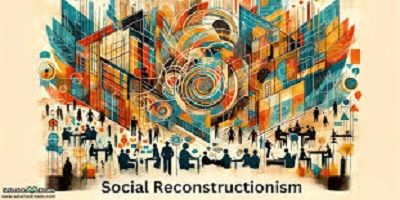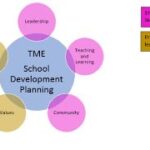Reconstructionism and Curriculum
Reconstructionism and Curriculum: Reconstructionism in education emphasizes the role of schools in restructuring society toward a more just and equitable future. In this context, curriculum development becomes a pivotal tool for enacting societal change. This essay explores the latest trends and perspectives regarding reconstructionism and curriculum, highlighting key principles and approaches.
Understanding Reconstructionism
Reconstructionism views education as a means to address social inequities and promote progressive change. It advocates for a curriculum that fosters critical thinking, social responsibility, and active citizenship. Rather than maintaining the status quo, reconstructionist educators seek to challenge existing power structures and envision alternative futures.
Reconstructionism and Curriculum Development
Curriculum development within a reconstructionist framework prioritizes relevance, inclusivity, and social justice. It aims to empower students to analyze societal issues critically and engage in transformative action. Key considerations in reconstructionist curriculum development include:
Social Contextualization:
- Curriculum content is situated within real-world contexts, allowing students to understand the interconnectedness of social, political, and economic factors.
- Issues such as poverty, racism, environmental sustainability, and global citizenship are central themes in reconstructionist curricula.
Critical Pedagogy:
- Reconstructionist educators employ pedagogical strategies that encourage critical inquiry, dialogue, and reflection.
- Students are encouraged to question dominant narratives, examine multiple perspectives, and challenge injustices within their communities.
Multiculturalism and Diversity:
- Reconstructionist curricula celebrate diversity and promote cultural awareness and appreciation.
- Efforts are made to include diverse voices, histories, and experiences, fostering empathy and understanding among students from different backgrounds.
Civic Engagement:
- Curriculum activities extend beyond the classroom, encouraging students to become active participants in their communities.
- Service-learning projects, advocacy initiatives, and community partnerships provide opportunities for students to address local and global issues.
Latest Trends and Innovations
Contemporary approaches to reconstructionist curriculum development incorporate emerging trends and innovations in education. Some notable developments include:
Technology Integration:
- Digital tools and online platforms are integrated into reconstructionist curricula to enhance collaboration, research, and communication skills.
- Virtual simulations, multimedia resources, and interactive learning experiences enrich students’ understanding of complex social issues.
Project-Based Learning:
- Project-based learning (PBL) offers students opportunities to explore authentic, real-world problems and develop creative solutions.
- Reconstructionist educators design interdisciplinary projects that challenge students to apply their knowledge and skills to address pressing social challenges.
Global Perspectives:
- Reconstructionist curricula embrace a global perspective, encouraging students to explore interconnected issues and engage with diverse cultures and perspectives.
- Cross-cultural exchanges, virtual collaborations, and international service projects foster global awareness and solidarity among students.
Conclusion
Reconstructionism continues to shape curriculum development by emphasizing social justice, critical inquiry, and civic engagement. By integrating the latest trends and innovations, reconstructionist educators strive to empower students to become agents of positive change in their communities and beyond. As we navigate an ever-changing world, the principles of reconstructionism remain essential for creating a more just and equitable society through education.




